
+91 8095511877

+91 8095511877
Lymphoma is a type of blood cancer. If you have lymphoma, there will be an increase in the number of lymphocytes in your body. The abnormal lymphocytes or 'lymphoma cells' are present in the lymph nodes than in the blood. In leukemias, there is an increase in the number of lymphocytes in the blood.
Apart from lymph nodes, lymphomas also affect your spleen, thymus, bone marrow, etc. It may also affect your lungs, liver, and other organs as well.
There are about 70 types of lymphoma. The main ones are Hodgkin's and Non-Hodgkin's lymphomas. More than eighty-five percent are Non-Hodgkins lymphomas.
The presence of Reed-Steinberg cells is the sign of Hodgkin's lymphoma. Even though treatment is the same for both, Hodgkin's lymphoma is the more easily treatable type.
Chemotherapy, targeted therapy, and radiation are the usual treatment methods. Your doctor will choose the right plan as per the type and stage of your disease.
The exact cause of lymphomas is not clear. Genetic changes in the stem cells that develop into lymphocytes may be a reason. These changes affect the way the cells survive and divide. As the lymphoma cells live longer than normal lymphocytes, they cluster together in lymph nodes and organs like the splee and the bone marrow.
Things that increase your risk of having a disease are called risk factors. You can also have the disease even when you do not have any of these.
Some of the common risk factors are
Few of the common symptoms for lymphomas are
If some of your symptoms make the doctor suspect lymphomas, you will have a few tests. Thes include
Your treatment will depend on the type of lymphoma you have and how fast it is growing.
Some types of lymphomas will not have any symptoms for a very long time. In such cases, the doctor will wait until the symptoms appear.
You will have treatments either to control your symptoms or to bring the disease to a phase of remission.
Chemotherapy uses medicines to destroy cancer cells. You will have the medication orally or as injections to your veins. These medicines destroy the cellular mechanism that helps the cancer cells to survive and multiply abnormally. You will have the treatment in cycles that last for a few days together. The number of cycles you will have will depend on the severity of the disease. The medicines cause some damage to healthy cells as well. To help you recover from these side effects, you will have periods of rest between the cycles.
This treatment, like chemotherapy, uses medicines to destroy cancer cells. It acts by blocking the signals that tell the cancer cells to grow and divide. These medicines target only the cancer cells and cause very little damage to healthy cells. So the side effects are less than that of chemotherapy.
In this treatment, you will have medicines to boost your body's immunity to fight cancer. Though abnormal, cancer cells have a mechanism to disguise as healthy cells in front of the natural antibodies in your body. It prevents these antibodies from identifying the cancer cells properly, allowing them to survive. Immunotherapy drugs help these antibodies to locate and destroy the cancer cells
Surgery is rarely a frontline treatment for lymphomas. If you have lymphomas in a single site other than lymph nodes, surgery will help to remove it. Radiation therapy is a better option if you have lymphomas in multiple sites.
The treatment uses high energy x-rays to destroy the lymphoma cells. It is very useful for early-stage lymphomas. In those with advanced-stage lymphomas, radiation helps to ease the symptoms. Those having a bone marrow transplant will have radiation before it. It helps to destroy the faulty bone marrow and to destroy as much of the lymphoma cells as possible.
Chemotherapy, while a good option, will also destroy several stem cells in the bone marrow along with lymphoma cells. It will thus lead to a decrease in the number of different blood cells.
A stem cell/bone marrow transplant can overcome this problem. It helps you to have more intensive chemotherapy.
Remission
In this phase, the amount of lymphoma cells in your body is very small or almost zero. This type of remission is complete remission. You will not have any of the signs and symptoms of lymphoma. In short, you are free of the disease. But, there may be small amounts of lymphoma cells that remain undetected in your body. It is then possible for the disease to relapse.
In partial remission, the amount of lymphoma cells in your body is low, and there are no obvious symptoms. In such cases, you will not need any treatment.
Wait and watch approach
Sometimes your lymphoma diagnosis happens by chance during a routine blood test. You will also not have any other symptoms in such situations. In that case, your doctor will ask you to wait and watch. You will not have any treatment during this time. All that you will have is periodic tests to see whether the cancer is growing. You will have treatment only if it grows beyond a particular stage, or if the signs are worrying


This article has been reviewed for medical correctness and relevance by
Dr Niti Raizada
Dr. Niti Raizada is a senior Medical Oncologist with over fifteen years of experience in the field. Dr Niti has special interests in the areas of Thoracic, Gastrointestinal, Breast, Gynaecological Oncology, and Bone Marrow Transplants. She did her MBBS at Gandhi Medical College, Bhopal; MD-General Medicine at G R Medical College, Gwalior, DNB-General Medicine from National Board Of Examination,DM from Adyar Cancer Institute Chennai and Fellowship in Hematology from Hammersmith Hospital and Imperial College,London. She is a member of American Society of Clinical Oncology,USA; Royal College of Physicians,Edinburgh,UK; Member of Pharmacy Committee,Member of DNB teaching program in Medical Oncology and European Society of Medical Oncology (ESMO).

Aida Ismail
Australia
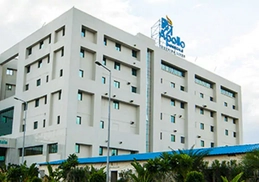
Apollo Chennai
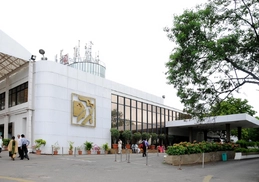
Apollo Health City
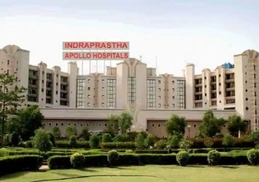
Apollo Indraprastha
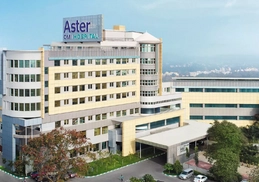
Aster CMI

BLK Hospital
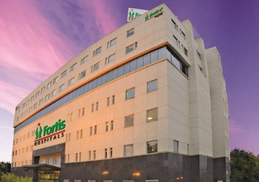
Fortis Bangalore
Frequently Asked Questions
What is the most common treatment for lymphoma?
Can lymphoma be completely cured?
What is the best hospital to treat lymphoma in India?
How much does a bone marrow transplant cost in India?